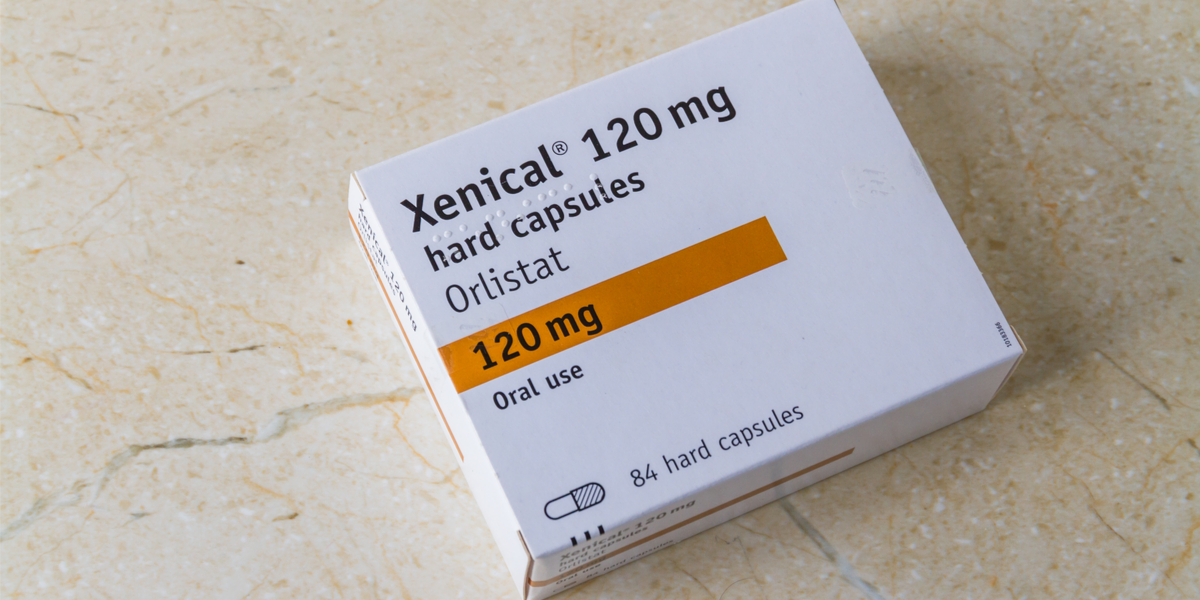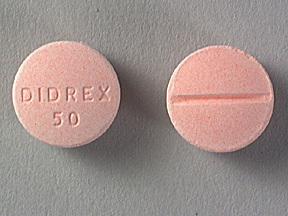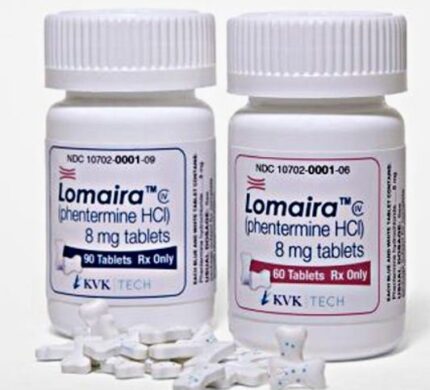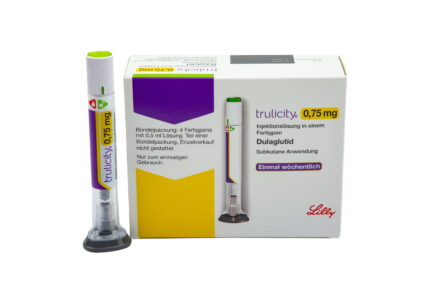What is Xenical(orlistat)
Orlistat is a medication used to treat obesity by reducing the absorption of dietary fat. It is marketed under the brand names Xenical and Alli. Orlistat works by inhibiting the activity of lipase, an enzyme that breaks down fat in the intestines. This leads to a decrease in the amount of fat that is absorbed by the body, and an increase in the amount of fat that is excreted in the stool.
Xenical is a prescription medication that contains a higher dose of orlistat, while Alli is an over-the-counter medication that contains a lower dose of orlistat. Both medications are taken orally with meals that contain fat, up to three times a day. Orlistat may cause gastrointestinal side effects such as oily stools, flatulence, and abdominal cramping, particularly if the patient consumes a high-fat diet.
Orlistat is typically used as part of a comprehensive weight loss program that includes diet and exercise, and may be recommended for people with a body mass index (BMI) of 30 or higher, or a BMI of 27 or higher with weight-related health problems such as high blood pressure, diabetes, or high cholesterol. It is important to consult with a healthcare professional before starting orlistat, as it may interact with other medications or have contraindications for certain health conditions.
If you are taking the over-the-counter product to self-treat, read all directions on the product package before taking this medication.
If your doctor has prescribed this medication, read the Patient Information Leaflet if available from your pharmacist before you start taking orlistat and each time you get a refill. Take this medication as directed by your doctor, by mouth with liquid sometime during each meal that contains fat or within 1 hour after the meal, usually 3 times daily. If you miss a meal or your meal contains no fat, skip that dose of the medication. To decrease the chance of unpleasant side effects, it is very important that no more than 30% of the calories in your diet come from fat. Your daily intake of fat, protein, and carbohydrates should be evenly spread over 3 main meals.
Do not increase your dose or use this drug more often or for longer than prescribed. Your condition will not improve any faster, and your risk of side effects will increase.
Because this drug can interfere with the absorption of certain vitamins (fat-soluble vitamins including A, D, E, K), a daily multivitamin supplement containing these nutrients is recommended. Take the multivitamin at least 2 hours before or 2 hours after taking orlistat (such as at bedtime).
If you take cyclosporine, take it at least 3 hours before or after orlistat to make sure the full dose of cyclosporine is absorbed into your bloodstream. If you take levothyroxine, take it at least 4 hours before or after orlistat.
You should see some weight loss within 2 weeks after you start orlistat. Tell your doctor if your condition does not improve or if it worsens.
Changes in your bowel function often occur because of the unabsorbed fat. Fatty/oily stool, oily spotting, intestinal gas with discharge, a feeling of needing to have a bowel movement right away, increased number of bowel movements, or poor bowel control may occur. These side effects may get worse if you eat more fat than you should. If these effects persist or worsen, notify your doctor promptly.
If your doctor has directed you to use this medication, remember that he or she has judged that the benefit to you is greater than the risk of side effects. Many people using this medication do not have serious side effects.
Stop taking this medication and tell your doctor right away if any of these rare but serious side effects occur: symptoms of liver disease (such as persistent nausea/vomiting, severe stomach/abdominal pain, dark urine, yellowing eyes/skin), symptoms of kidney stones (such as back pain, pain when urinating, pink/bloody urine).
A very serious allergic reaction to this drug is rare. However, get medical help right away if you notice any symptoms of a serious allergic reaction, including: rash, itching/swelling (especially of the face/tongue/throat), severe dizziness, trouble breathing.
Before taking orlistat, tell your doctor or pharmacist if you are allergic to it; or if you have any other allergies. This product may contain inactive ingredients, which can cause allergic reactions or other problems. Talk to your pharmacist for more details.
Before using this medication, tell your doctor or pharmacist your medical history, especially of: a certain digestive problem (chronic malabsorption syndrome), a certain gall bladder problem (cholestasis), underactive thyroid (hypothyroidism), kidney stones/problems (such as calcium oxalate kidney stones, hyperoxaluria), certain eating disorders (anorexia nervosa/bulimia), HIV infection, seizures.
Before having surgery, tell your doctor or dentist about all the products you use (including prescription drugs, nonprescription drugs, and herbal products).
If you are diabetic, weight loss may improve your blood sugar control. Be sure to check your blood sugar regularly and tell your doctor the results. Your doctor may need to adjust your diabetes medication, exercise program, or diet.
This medication must not be used during pregnancy. Weight loss offers no potential benefit to a pregnant woman and may harm an unborn baby. If you become pregnant or think you may be pregnant, tell your doctor right away.
It is unknown if this drug passes into breast milk. Consult your doctor before breast-feeding.
Store at room temperature away from light and moisture. Do not store in the bathroom. Keep all medications away from children and pets.
Do not flush medications down the toilet or pour them into a drain unless instructed to do so. Properly discard this product when it is expired or no longer needed. Consult your pharmacist or local waste disposal company for more details.
See also How to Use section.
Drug interactions may change how your medications work or increase your risk for serious side effects. This document does not contain all possible drug interactions. Keep a list of all the products you use (including prescription/nonprescription drugs and herbal products) and share it with your doctor and pharmacist. Do not start, stop, or change the dosage of any medicines without your doctor’s approval.
Some products that may interact with this drug include: “blood thinners” (such as warfarin), HIV medications (such as atazanavir, efavirenz, emtricitabine, lopinavir, ritonavir, tenofovir).
If you are taking medications to treat seizures, orlistat may cause these drugs to not work as well. Stop taking orlistat and tell your doctor right away if your seizures are happening more often or are getting worse.















Reviews
There are no reviews yet.